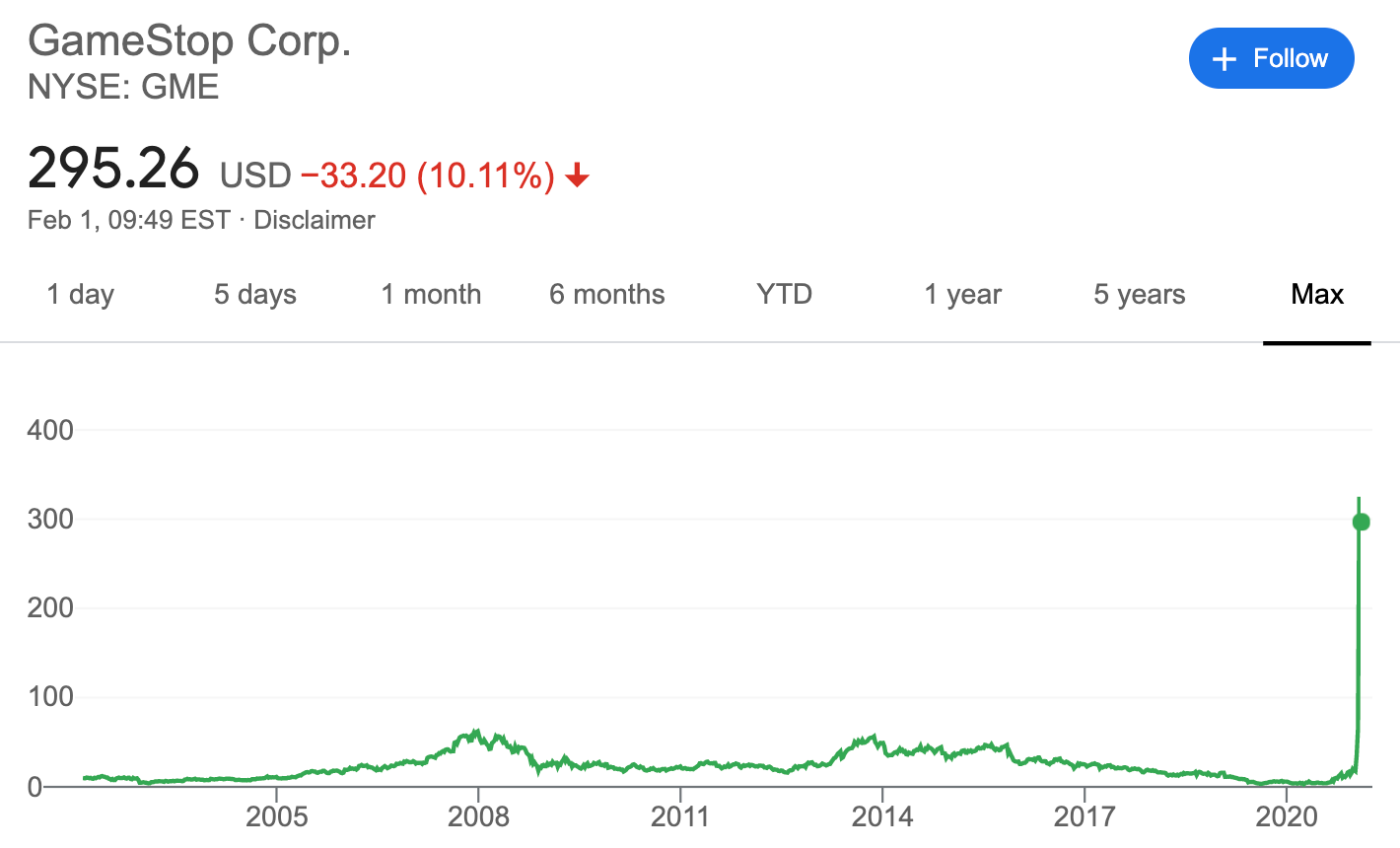Robinhood: Robbing the Poor to Give to the Rich? A Story about the Fragility of the Brand
"It takes 20 years to build a reputation and 5 minutes to ruin it. If you think about that, you'll do things differently." (Warren Buffett)
Kevin Costner is officially not the worst Robin Hood anymore.
Robinhood, the popular *commission-free* stock trading app which is also among the most valuable financial technology startups in the world, is undoubtedly the most hated and pressured FinTech on earth right now. And there are obvious reasons why.
Robinhood’s story is fascinating not because it found itself at the epicenter of the GameStop Stock Pop Saga (though this will be briefly covered too). It is fascinating because it’s a brilliant story about the fragility of the brand and compromised trust, which has turned its once your most loyal customers into some of the biggest haters.
P.S. Before we go forward, make yourself a favor and subscribe to this newsletter if you haven’t done so yet (I’m talking about Premium here!👀). You will get at least 2 newsletters every week, 2 monthly digests on FinTech, and Blockchain & Cryptocurrency, and more!
First things first, how and why it all started
It all began when a bunch of Reddit users on WallStreetBets sub-Reddit found out that GameStop (GME) stock was shorted by more than 100%. This means that investors had bet more shares than existed in the company with an expectation that it will lose value.
To roast the institutional investors, Redditors started buying GME stock on a massive scale. GME stock thus skyrocketed, forcing the hedge funds and other big players to decide whether to hold onto their negative bet and take strong paper losses as GameStop rallied, or cover their short positions, buying the stock at a higher price than they initially paid for it, losing money.
Surprisingly, covering shorts would require buying the stock at high prices, perhaps boosting its value yet again. As an effect, the wildest short-squeeze was born.
A short squeeze occurs when a stock or other asset jumps sharply higher, forcing traders who had bet that its price would fall, to buy it in order to forestall even greater losses. Their scramble to buy only adds to the upward pressure on the stock's price (Investopedia)
The effect? Short-sellers have lost nearly $20 billion (!) this year alone thanks to GameStop’s rapid appreciation.
Robbing the Hood
Robinhood, thanks to its gamified trading platform, has found itself at the epicenter of the GME saga. Being in the middle of the stock market craze and short squeeze, the company announced on Thursday it was restricting trading on a number of stocks, including the most desired GameStop, citing risk management decisions to protect Robinhood and its clearinghouses.


And this is when the shit started hitting the fan… 💩



The key narrative at the core was that the FinTech platform has halted the trading of stocks favored by retail investors so it could protect hedge fund allies, primarily Citadel, to which Robinhood is selling its order flow.
Fueled by the injustice and feeling betrayed, thousands or even hundreds of thousands of people, once loyal supporters and users of Robinhood, have started spilling fire, ditching the app for other brokers, and flocked Google Play store to cast their *vote*.
As a result, their 4-star rating has dropped to 1. Various sources have indicated that Google has deleted nearly 100,000 negative reviews, thus bringing the rating up. At the point of writing, it seems that either this was revoked or more people have cast their *vote*.
While the specific reasons may have been short-term and mainly technical (Robinhood later made a public statement saying that it ran low on capital and had to make some hard decisions, quickly), but their choice and way of doing it definitely looked corrupt to the average person. It got them angry, and that’s what this story is all about.
How it should have been done. Just 2 cents…
Instead of explaining himself after the fact, Robinhood CEO should have been brutally honest from the very beginning. Because the first rule of crisis communications is to be really honest and provide all the details possible.
Hence, there should have been constant updates on every social media platform every 30-60 minutes, doing a live stream if necessary so people would feel that Rohinhood cares for them and does everything in their power to be FOR the people and not AGAINST them.
They could’ve just said as simple as this:
Hey Everyone, we are seeing a tremendous amount of interest in a number of stocks [name them]. We are really glad to see so many people participating in the financial markets, but at this rate, we do not have enough capital to support trade at our end. As we speak, we are pulling an extra $1 billion in additional financing. Please rest assured we won’t sleep until this is resolved.
A simple message like this could have completely changed the game. Overnight they could have entered a different league and setting an example to follow. And yet they didn’t…
The Fragility of the Brand
As it was correctly pointed out by Alex Lieberman, this Robinhood’s story is all about the fragility of the brand and jeopardized trust.
Robinhood has spent 7 years building confidence in its platform, but it took them only 7 minutes to ruin it. They clearly haven’t listened to the good old Warren Buffett speaking about the importance of reputation and how easily it can be ruined if you act foolishly.
And while the real reasons might have been indeed technical (there’s no point digging deep into them now), the way they did it was so bad that the narrative of them democratizing finance turned completely against them.
One could argue that your brand is the single most important investment in any business. It seems that Rohinhood thought otherwise, and had to learn this the hard way.
Surprisingly or not, all of this looks rather poetic given that the stock trading app plans to IPO already this quarter in 2021.
If you found this useful, first - go Premium:
Then - share it with others and spread the word:
Note: this article was born out of the story on Weekly FinTech Digest.
***
About: I am a business developer, sales professional, FinTech strategist, as well as Cryptocurrency and Blockchain enthusiast. I'm highly passionate about Financial Technology and Digital Innovation, and strongly believe that it will change the world for the better. Apart from my daily job at a global payments startup where I'm leading the company's expansion into Europe, I'm an active member of the FinTech community and a TechFin evangelist.
If you've enjoyed this piece, don't hesitate to press like, comment on what you think, and share the article with others. Let's spread the knowledge together!
For more, you can check me on LinkedIn & Twitter where I’m sharing my thoughts and insights daily!🔥🚀







